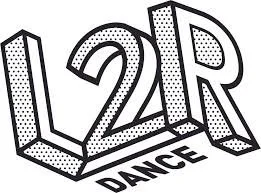The Power of Performing Arts: Cultivating 21st Century Skills in Young People
By Anna Hickey-Moody
I grew up in theatres, painting scenes on floors, sewing costumes, rehearsing cues. At the time, I felt that I was eccentric, but retrospectively I realise how much I learnt during these long hours of unpaid labour. In an era where the rapid pace of technological advancement and globalisation demands a diverse skill set, the performing arts—dance, theatre, and music—provide young people with unique opportunities to develop essential 21st century skills. Through engagement in these creative disciplines, students not only nurture their artistic talents but also hone critical skills such as creativity, critical thinking, teamwork, and collaboration. In this blog post I explore how each of these disciplines contributes to the development of these skills and highlight the interconnectedness of the learning experiences they offer.
Dance: Movement and Creativity
Dance, as an art form, is a powerful medium for expressing emotions, telling stories, and exploring physicality. For young people, participating in dance fosters creativity in several ways. Choreography challenges dancers to think outside the box, experiment with movement, and innovate within the constraints of rhythm and space. This process of creation and experimentation helps students develop the ability to generate novel ideas and solutions.
Critical thinking is another skill nurtured through dance. Dancers must constantly assess their own movements, understand complex sequences, and make quick decisions to adapt to changing dynamics during a performance. This self-reflective practice enhances their ability to analyse and evaluate their actions, leading to improved performance and personal growth.
Teamwork and collaboration are integral to dance, especially in group performances. Dancers learn to synchronise their movements, respond to cues from their peers, and maintain a collective rhythm. This cooperative effort fosters a sense of community and teaches students the importance of working harmoniously with others to achieve a common goal.
Theatre: The Art of Storytelling and Critical Thinking
Theatre is a rich, multifaceted discipline that immerses young people in the world of storytelling, character development, and dramatic expression. Engaging in theatre activities encourages creativity by allowing students to inhabit different roles, explore diverse perspectives, and bring scripts to life through their unique interpretations. The process of creating a character or envisioning a scene demands imaginative thinking and original expression.
Critical thinking is at the heart of theatrical performance. Actors must deeply analyse scripts, understand character motivations, and interpret complex narratives. This analytical approach cultivates a student’s ability to dissect information, draw connections, and think deeply about various aspects of human experience. Theatre also requires quick thinking and adaptability, as performers must respond to unexpected changes or improvisations during live performances.
Teamwork and collaboration are essential in theatre, as productions rely on the seamless integration of various elements—acting, direction, set design, and technical support. Students learn to communicate effectively, share responsibilities, and support one another to ensure the success of a performance. This collaborative environment reinforces the value of mutual respect, cooperation, and the collective effort needed to bring a theatrical vision to life.
Music: Harmony and Analytical Skills
Music education offers young people a profound way to express themselves and engage with the world of sound. Creativity in music is evident through composition, improvisation, and interpretation. Musicians experiment with melodies, harmonies, and rhythms, pushing the boundaries of conventional music to create something unique. This creative exploration encourages students to think innovatively and embrace new ideas.
Critical thinking in music involves the analysis of musical pieces, understanding theoretical concepts, and applying this knowledge in practice. Musicians must interpret scores, recognize patterns, and make informed decisions about phrasing, dynamics, and expression. This analytical process enhances their ability to think logically and solve problems creatively.
Teamwork and collaboration are fundamental in music, particularly in ensemble settings such as bands, orchestras, and choirs. Musicians learn to listen to one another, blend their sounds, and maintain cohesion within the group. This collaborative effort teaches them the importance of working together, respecting each other’s contributions, and achieving harmony through collective effort.
Interconnected Learning: A Holistic Approach
While each discipline—dance, theatre, and music—individually contributes to the development of creativity, critical thinking, teamwork, and collaboration, they also share common threads that interweave these skills. Participation in performing arts as a whole offers a holistic learning experience where skills learned in one discipline reinforce and complement those in another.
For instance, the creativity fostered in dance can enhance a student’s ability to improvise in music or bring originality to a theatrical performance. Similarly, the critical thinking skills honed in theatre can aid in the analytical interpretation of musical scores or the strategic planning of a dance routine. The teamwork and collaboration experienced across all disciplines build a strong foundation for working effectively in diverse group settings, be it in a dance troupe, a theatre cast, or a musical ensemble.
Moreover, performing arts education cultivates emotional intelligence, empathy, and cultural awareness, enriching students’ understanding of themselves and the world around them. These experiences prepare young people not only for artistic pursuits but also for the broader challenges of the 21st century, equipping them with a versatile skill set that transcends traditional academic boundaries.
Conclusion
Engagement in dance, theatre, and music offers young people a dynamic platform to develop crucial 21st century skills. Through the creative processes inherent in these disciplines, students learn to think creatively, analyse critically, collaborate effectively, and work as part of a team. The interconnected nature of the performing arts ensures that the skills learned in one area can enhance and support growth in another, providing a comprehensive and enriching educational experience. As we navigate an ever-changing world, the performing arts remain a vital avenue for cultivating the adaptable, innovative, and collaborative thinkers of tomorrow.
We value the ongoing involvement and support of our partner organisations.







